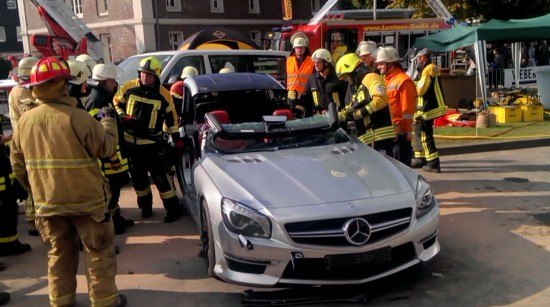#CarAccidents
IIHS Denounces Concept of Total Safety From Autonomous Cars
When the United States began passing legislation allowing automakers to begin testing self-driving vehicles on public roads, it was framed almost entirely as a safety issue. Proponents claimed that the only way to eliminate roadway fatalities was to take the human brain out of the equation and let cars drive themselves. Having enacted a similar no-thinking policy themselves, legislators agreed — pleased to have ensured a death-free future on little more than empty corporate promises.
At the time, we were still complaining about the unreliable nature of advanced driving aids, and how such systems seem custom-made to dull your reflexes behind the wheel. There was a sense that, if everything went perfectly, maybe autonomous vehicles (AVs) could reduce accidents by previously unheard of levels. That feeling didn’t last particularly long here at TTAC and, by 2018, we started noticing we weren’t alone.
The Insurance Institute for Highway Safety (IIHS) grew increasingly critical of AVs starting a couple of years ago. On Thursday, it released a report claiming the idea of a no-crash future spurred by automation is a fantasy. Instead, the IIHS says cutting-edge technology will likely struggle to stop just a third of all accidents.
Dropping Junk All Over the Road: A Growing American Pastime
Whether it’s a poorly tied-down college mattress taking flight like a ungraceful, soiled bird, or scrap metal launching itself out of a pickup bed after hitting a pothole, debris is piling up on U.S. roads, and drivers are dying because of it.
According to a study by the AAA Foundation for Traffic Safety, crashes caused by road debris rose 40 percent in the past 15 years. America’s loads have never been looser.
Australians Create Terrifying Man-Thing to Showcase Vehicle Safety
What would your body look like if it evolved to survive a car crash?
That’s the question a group of Australians had in mind when they created Graham, a disturbingly lifelike creation designed to show how vulnerable our bodies are in a low-speed impact.
Mercedes-Benz To Support First Responders With "Rescue Assist"
With little fanfare Mercedes-Benz recently announced a claimed first-of-its-kind program designed to help firefighters and EMTs at sites of severe accidents involving Mercedes-Benz vehicles. With Rescue Assist, the company is installing QR code stickers on their cars so First Responders will be able to use a Smartphone to bring up a schematic of the vehicle showing where airbags, the fuel tank, and other critical structural components are located. Their intent is to make the accident scene safer for rescue folks and passengers, particular in cases where the “Jaws Of Life” are needed.



















Recent Comments